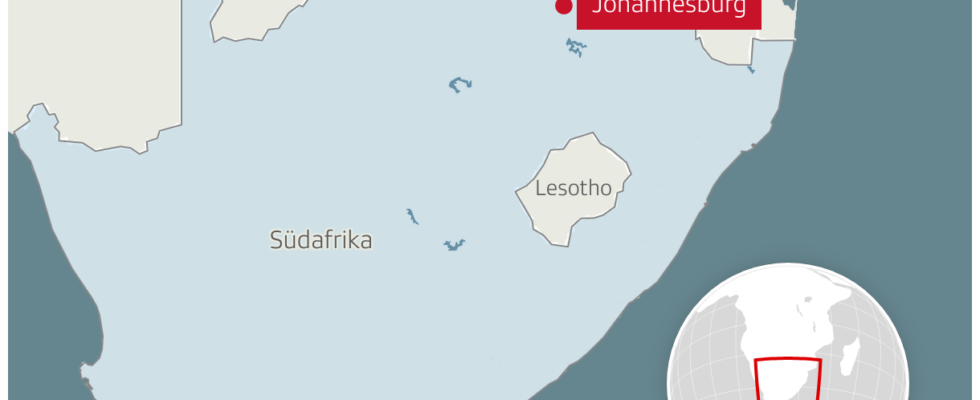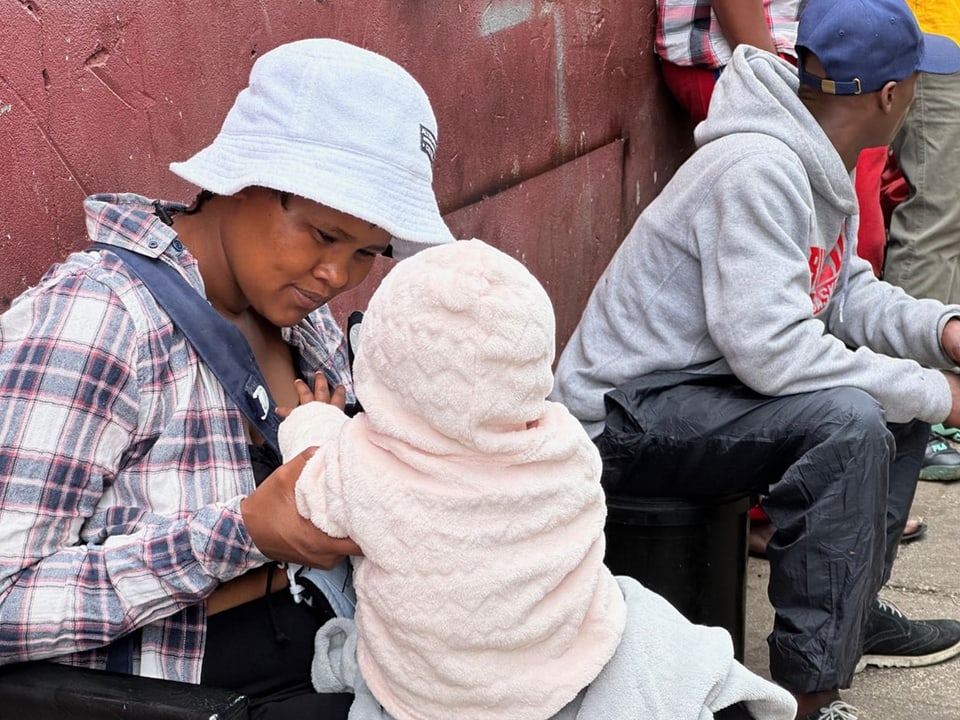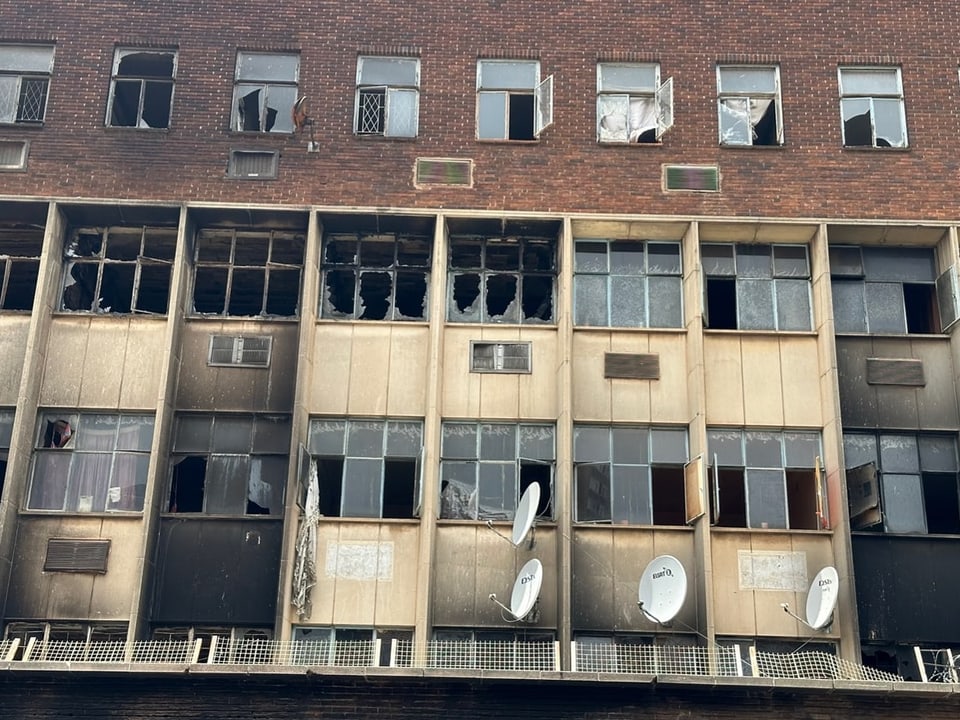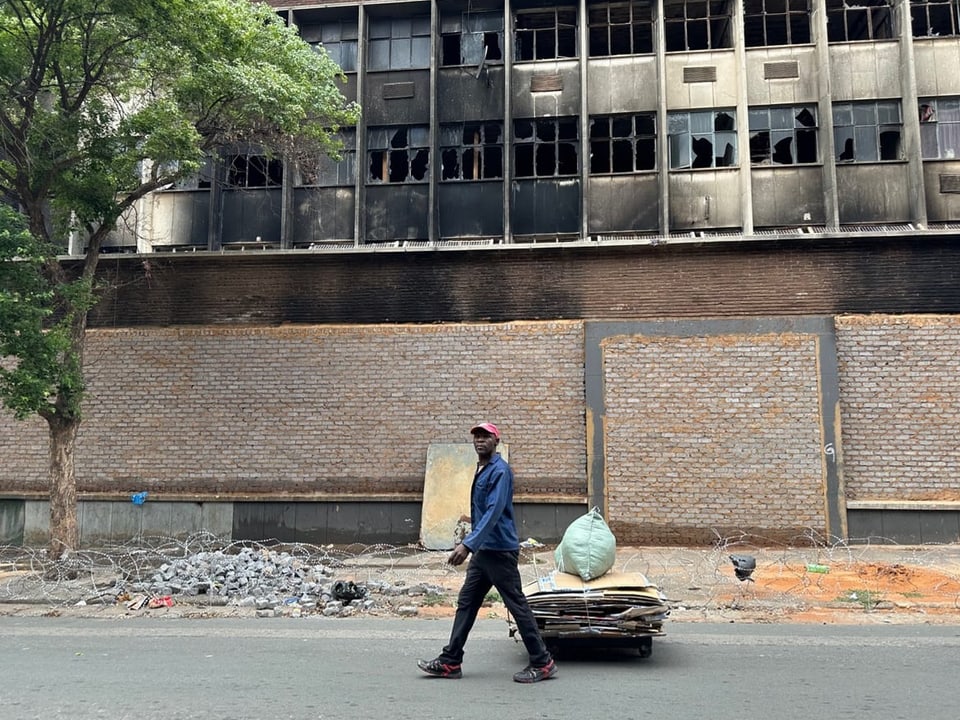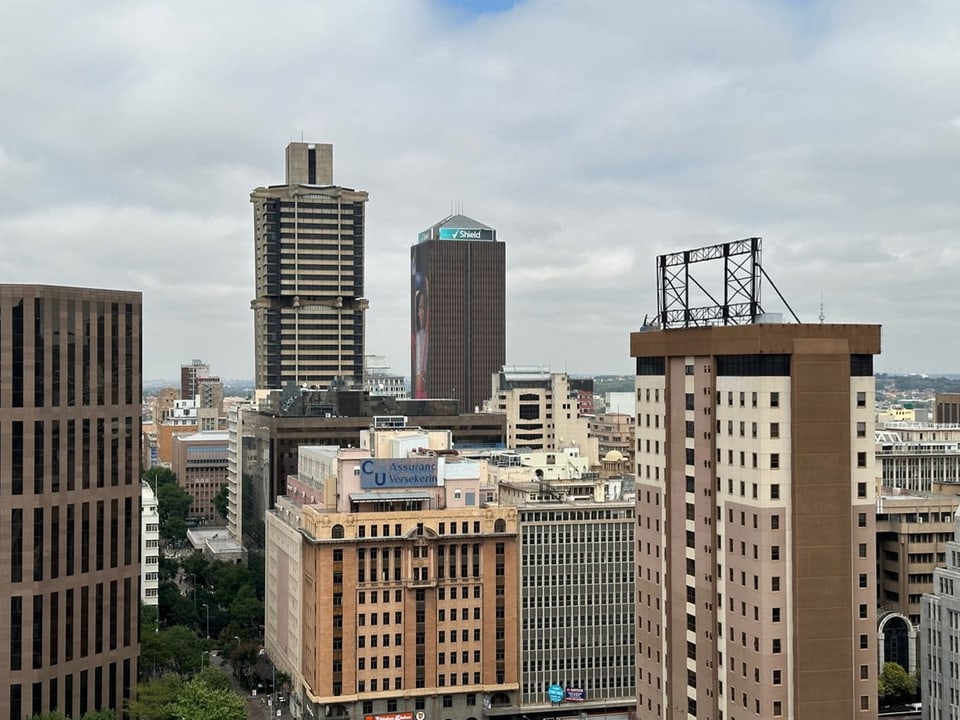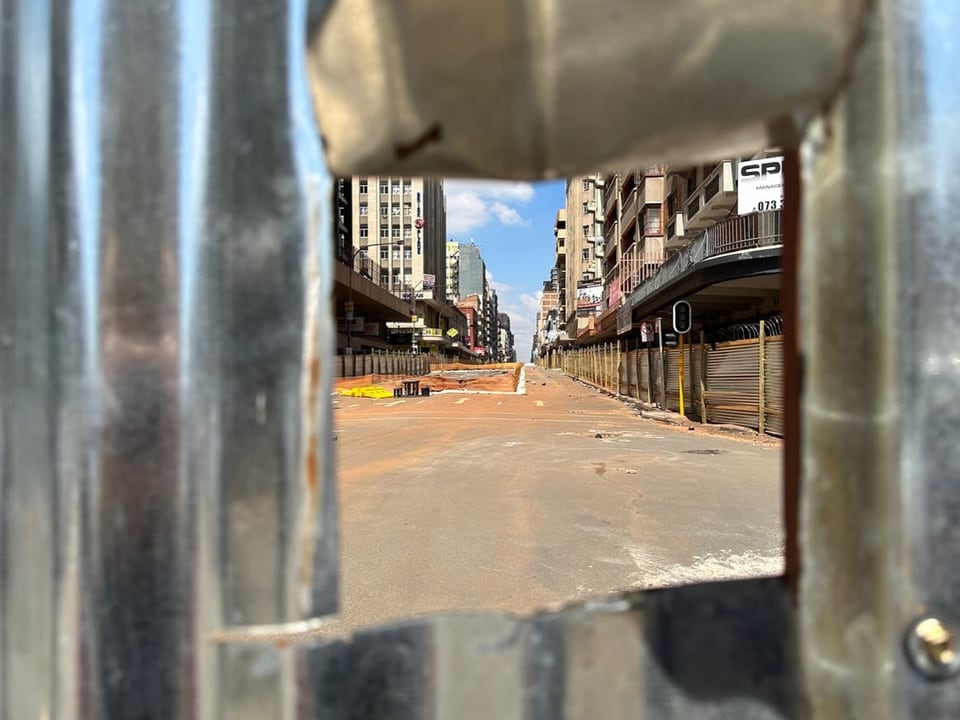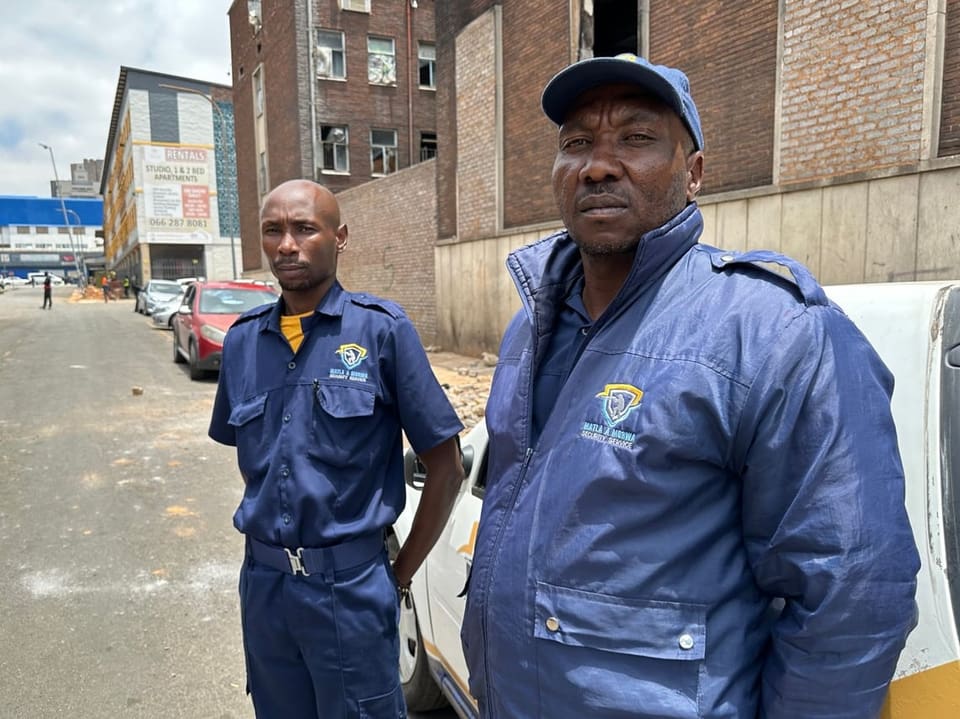Contents
The metropolis has become a place of occupied buildings. Meanwhile, politics is busy with itself.
Munira Changa breastfeeds her baby on a discarded office chair in the middle of the city center of Johannesburg. She looks out over a huge building, its windows broken and walls black from the fire that raged here in August, killing 77 people.
«I lived on the fourth floor and was lucky. I was able to escape via the fire escape. But many people I knew died, I still can’t believe it,” she murmurs, still visibly shocked.
The squatters were already there before the fire
Munira Changa lived with more than 300 people. Each family had built some kind of dwelling within the house. She didn’t live for free, but paid around 80 francs a month in rent to those who occupied the building.
Thousands of other South Africans or migrants from other African countries who earn a few francs in the informal sector live in a similar situation. According to an investigation by the New York Times, over a hundred public buildings in Johannesburg are occupied, many of which are controlled by gangs.
Six mayors in one year
Twenty years ago, downtown Johannesburg was considered a danger zone for those with cell phones and bulging handbags. Ten years ago, however, a change took place. Neighborhoods were renovated, there were markets and the whites who celebrated festivals here during apartheid dared to return.
But since a coalition government has taken over the city’s fortunes in Johannesburg, the infrastructure has been crumbling before the eyes of the population. An underground gas pipeline exploded in the city in mid-July, leaving two people injured. Then the fire in August and since then other small fires that didn’t make the international headlines.
«I come from Johannesburg. So far, the respective governments have really tried to do something for the city and the people who live here,” says security officer John Makhuba, who, together with his colleague, ensures that the burned-out building is not reoccupied. “But since the coalition government came to power, we have seen six mayors in one year. And they were all just working into their own pockets.”
A city that no one rules
Lauren Royston from the Institute for Socioeconomic Rights also makes this observation. «We are detecting a crisis in the local government. The coalition plays a role here: each party thinks about its own advantages and it seems to us that there is no big government.”
The policies exist, but they are not being implemented.
The institute advocates for the rights guaranteed by the constitution, such as the right to humane housing. Johannesburg has a responsibility towards its residents and also has resources at its disposal, emphasizes Lauren Royston. “When planning for adequate housing, public spaces that can be rented are an option. That means: the guidelines exist, but they are not being implemented.”
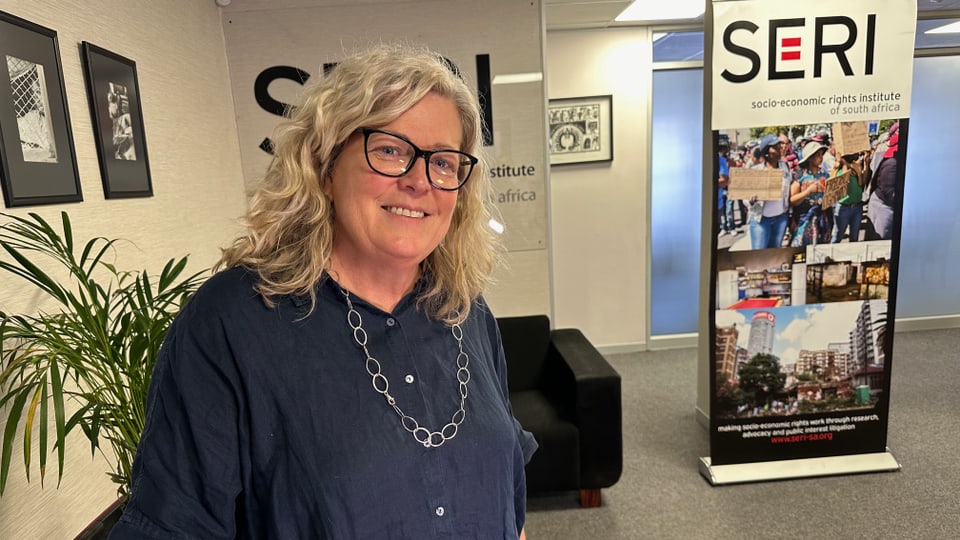
Legend:
Lauren Royston from the Institute for Socioeconomic Rights takes the city administration to task.
SRF
Anyone who drives through Johannesburg today will notice that the once recaptured neighborhoods are coming under pressure from all sides. They transition seamlessly into areas where boys with batons whistle to announce that journalists with cameras are showing up and where the gaze, directed upwards, lands on broken windows with whole life stories piled up behind them.
Nothing will change that any time soon. Because the coalition government has led Johannesburg to bankruptcy.
